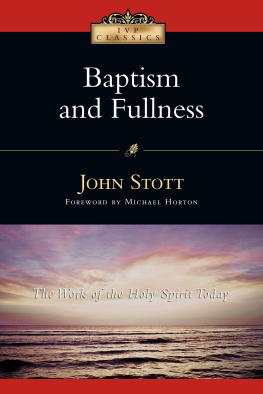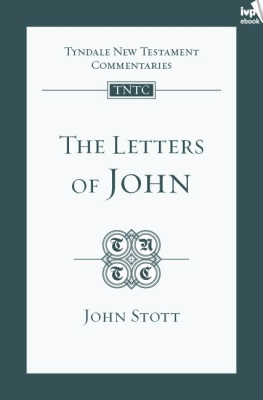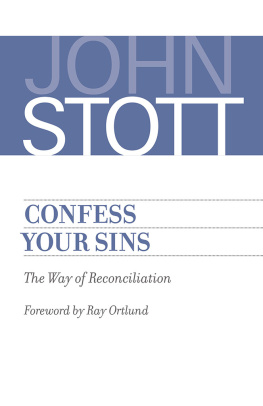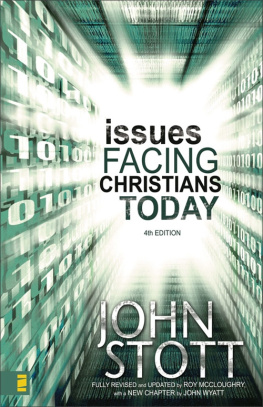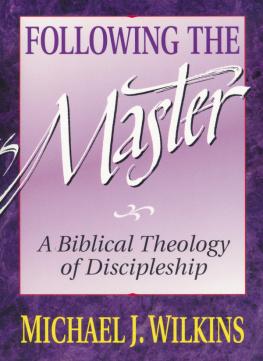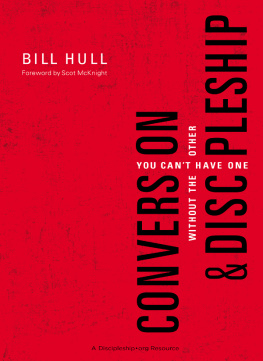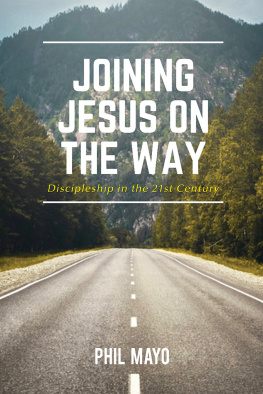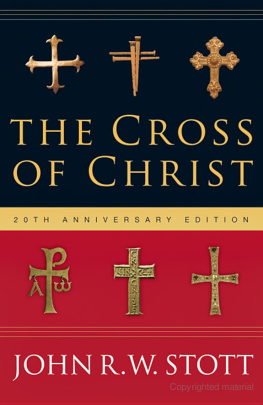Acknowledgments
Because the writing of this book was begun, continued and ended under the hospitable roof of the College of St Barnabas, my first thanks must go to its personnel, and to its warden and his wife, Howard and Lynne Such, to its residents and patients, to the nursing, caring, administrative, catering and cleaning staffs, since together they have created a rich Christian community of worship and fellowship, a context congenial to thinking and writing. When sometimes I have been preoccupied with these activities, I must have seemed an anti-social creature, but they have understood and forgiven me.
Another community to which I am indebted is that of St Johns Church, Felbridge; to their vicar Stephen Bowen, his wife Mandy, and their church wardens Anne Butler and Malcolm Francis. When I have felt strong enough, they have kindly arranged for me to be transported there and back on Sundays. They knew that a book was brewing and encouraged me along the way.
I greatly appreciate the editorial skill of David Stone, assisted by Eleanor Trotter, while other individuals who have contributed to the text include John Wyatt and Sheila Moore, both of whom have enriched Chapter 7 from their personal experiences. Peter Harris and Chris Wright have helped me with Chapter 4, while Grace Lam has given me vital information about her late husbands ministry (Chapter 5).
It has been a regular encouragement to receive a fortnightly visit from my nieces Caroline and Sarah, and my friend Phillip Herbert almost as often. Others have worked behind the scenes for me, for instance John Smith, who has patiently surfed the net for me.
Last but not least, Frances Whitehead has managed to maintain her weekly visits and so keep up with the endless stream of e-mails which she handles with extraordinary skill, together with this manuscript.
John Stott
Easter 2009
The first characteristic of the radical disciple which I bring before you I will call non-conformity. Let me explain why.
The church has a double responsibility in relation to the world around us. On the one hand we are to live, serve and witness in the world. On the other hand we are to avoid becoming contaminated by the world. So we are neither to seek to preserve our holiness by escaping from the world nor to sacrifice our holiness by conforming to the world.
Escapism and conformism are thus both forbidden to us. This is one of the major themes of the whole Bible, namely that God is calling out a people for himself and is summoning us to be different from everybody else. Be holy, he says repeatedly to his people, because I am holy (e.g. Leviticus 11:45; 1 Peter 1:1516).
We are neither to seek to preserve our holiness by escaping from the world nor to sacrifice our holiness by conforming to the world.
This foundational theme recurs in all four of the main sections of Scripture: the law, the prophets, the teaching of Jesus, and the teaching of the apostles. Let me give you an example from each. First, the law. God said to his people through Moses:
You must not do as they do in Egypt, where you used to live, and you must not do as they do in the land of Canaan, where I am bringing you. Do not follow their practices. You must obey my laws and be careful to follow my decrees. I am the L ORD your God.
(Leviticus 18:34)
Similarly, Gods criticism of his people through the prophet Ezekiel is that you have not followed my decrees or kept my laws but have conformed to the standards of the nations around you (Ezekiel 11:12).
It is the same in the New Testament. In the Sermon on the Mount Jesus spoke of the hypocrites and the pagans, and added: Do not be like them (Matthew 6:8). Finally the apostle Paul wrote to the Romans: Do not conform to the pattern of this world, but be transformed by the renewing of your mind (Romans 12:2).
Here then is Gods call to a radical discipleship, to a radical non-conformity to the surrounding culture. It is a call to develop a Christian counterculture, a call to engagement without compromise.
So what are the contemporary trends which threaten to swallow us up, and which we must resist? We will consider four. First, the challenge of pluralism. Pluralism affirms that every ism has its own independent validity and an equal right to our respect. It therefore rejects Christian claims to finality and uniqueness, and condemns as sheer arrogance the attempt to convert anybody (let alone everybody) to what it sees as merely our opinions.
How then should we respond to the spirit of pluralism? With great humility, I hope, and with no hint of personal superiority. But we must continue to affirm the uniqueness and finality of Jesus Christ. For he is unique in his incarnation (the one and only God-man); unique in his atonement (only he has died for the sins of the world); and unique in his resurrection (only he has conquered death). And since in no other person but Jesus of Nazareth did God first become human (in his birth), then bear our sins (in his death), and then triumph over death (in his resurrection), he is uniquely competent to save sinners. Nobody else possesses his qualifications. So we may talk about Alexander the Great, Charles the Great and Napoleon the Great, but not Jesus the Great. He is not the Great he is the Only. There is nobody like him. He has no rival and no successor.
A second widespread secular trend which Christian disciples have to resist is that of materialism. Materialism is not simply an acceptance of the reality of the material world. If that were the case, all Christians would be materialists, since we believe that God has created the material world and made its blessings available to us. God has also affirmed the material order through the incarnation and resurrection of his Son, in the water of baptism and the bread and wine of Holy Communion. It is no wonder that William Temple described Christianity as the most material of all religions. But it is not materialistic.
For materialism is a preoccupation with material things, which can smother our spiritual life. But Jesus told us not to store up treasure on earth and warned us against covetousness. So did the apostle Paul, urging us instead to develop a lifestyle of simplicity, generosity and contentment, drawing on his own experience of having learned to be content whatever the circumstances (Philippians 4:11).
Paul added that godliness with contentment is great gain (1 Timothy 6:6) and then went on to explain that we brought nothing into the world, and we can take nothing out of it. Perhaps he was consciously echoing Job who said: Naked I came from my mothers womb, and naked I shall depart (Job 1:21). In other words, life on earth is a brief pilgrimage between two moments of nakedness. So we would be wise to travel light. We shall take nothing with us. (I will say more about materialism in Chapter 5.)
The third contemporary trend which threatens us and to which we must not surrender is the insidious spirit of ethical relativism.
All round us moral standards are slipping. This is certainly so in the West. People are confused as to whether there are any absolutes left. Relativism has permeated culture and is seeping into the church.
There is no sphere in which this relativism is more obvious than in that of sexual ethics and the sexual revolution which has taken place since the 1960s. It used to be universally accepted (at least wherever Judeo-Christian ethics were taken seriously) that marriage is a monogamous, heterosexual, loving and lifelong union, and the only God-given context for sexual intimacy. But now, even in some churches, co-habitation without marriage is widely practised, dispensing with that commitment which is essential to authenticate marriage, while same-sex partnerships are promoted as a legitimate alternative to heterosexual marriage.


